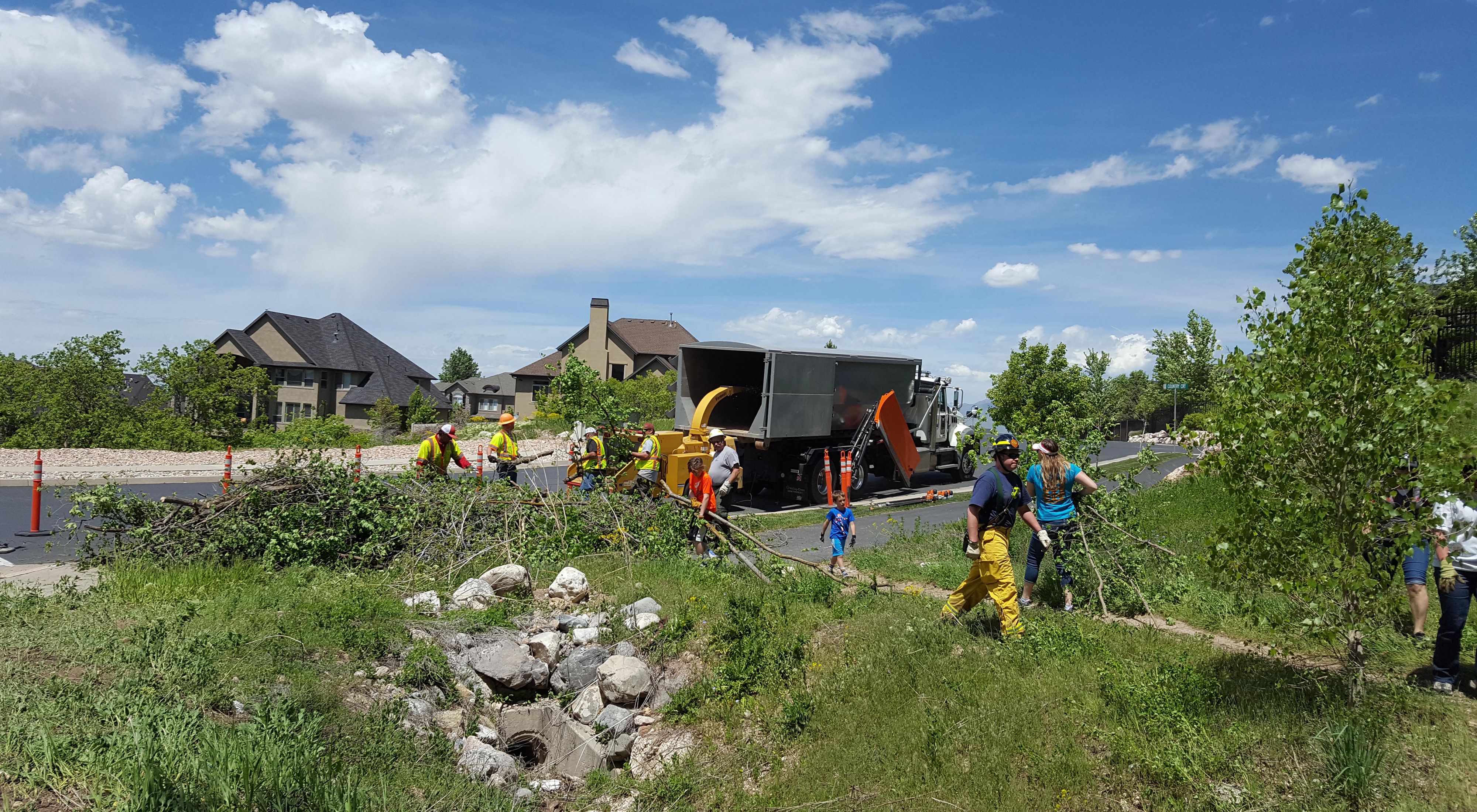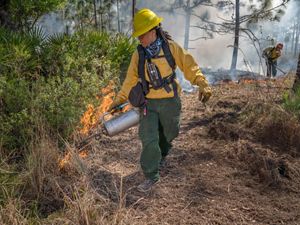Community Wildfire Defense Grant Program Awards Can Help Communities Adapt and Find a Better Future with Fire
Media Contacts
-
James Miller
The Nature Conservancy
Phone: 857-600-6603
Email: James.miller@tnc.org
The Nature Conservancy welcomes U.S. Agriculture Secretary Tom Vilsack’s announcement this week of an investment of $197 million from the Forest Service’s Community Wildfire Defense Grant program to support wildfire adaptation projects benefiting 22 states and seven Tribal Nations.
“In 60 years of working with wildland fire, The Nature Conservancy has learned that successful wildfire adaptation efforts are inevitably grounded in communities,” said Marek Smith, director of TNC's North America Fire program. “The Community Wildfire Defense Grant program provides an important opportunity to deliver needed resources to communities that are doing the challenging work of living sustainably with wildfire.”
Some of the 100 funded projects—including Chiloquin Wildfire Risk Reduction and Education in Oregon and Reducing Wildfire Risk in North-Central Nebraska at TNC’s Niobrara Valley Preserve—are being led by TNC or partners.
“We’re grateful for support of TNC-involved projects, and we’re deeply grateful to see a broad slate of funded projects that are diverse in terms of scope, communities represented and geography,” Smith said. “A better future with wildland fire requires that outmoded ideas and approaches are transformed by the vision and experience of diverse communities.”
Funded by the Infrastructure Investment and Jobs Act (IIJA)—also called the Bipartisan Infrastructure Law—and launched in July 2022, the Community Wildfire Defense Grant program is a five-year, competitive program designed to assist at-risk communities, including Tribal Nations, nonprofit organizations, state forestry agencies and Alaska Native corporations, with planning for and mitigating wildfire risks.
The intensity and scope of recent fires in New Mexico, California and Texas have exposed ecological, social and land management vulnerabilities. After such fires are contained, remediation and recovery work will continue for years.
A 2021 wildfire resilience funding report by TNC identified a minimum investment of approximately $5 billion to $6 billion per year over the next 10 years for the highest priority work to reduce wildfire risks across federal, tribal, state and private land ownerships, and for community and infrastructure investments. The IIJA funds are a good down payment on meeting the needs, but strengthening relationships with communities and building equitable partnerships will make the most of available resources.
TNC and Aspen Institute’s new Roadmap for Wildfire Resilience builds on the funding report to describe policy solutions to take a strategic, coordinated, all-of-society approach to building wildfire resilience.
The Nature Conservancy is a global conservation organization dedicated to conserving the lands and waters on which all life depends. Guided by science, we create innovative, on-the-ground solutions to our world’s toughest challenges so that nature and people can thrive together. We are tackling climate change, conserving lands, waters and oceans at an unprecedented scale, providing food and water sustainably and helping make cities more sustainable. The Nature Conservancy is working to make a lasting difference around the world in 81 countries and territories (40 by direct conservation impact and 41 through partners) through a collaborative approach that engages local communities, governments, the private sector, and other partners. To learn more, visit nature.org or follow @nature_press on X.



